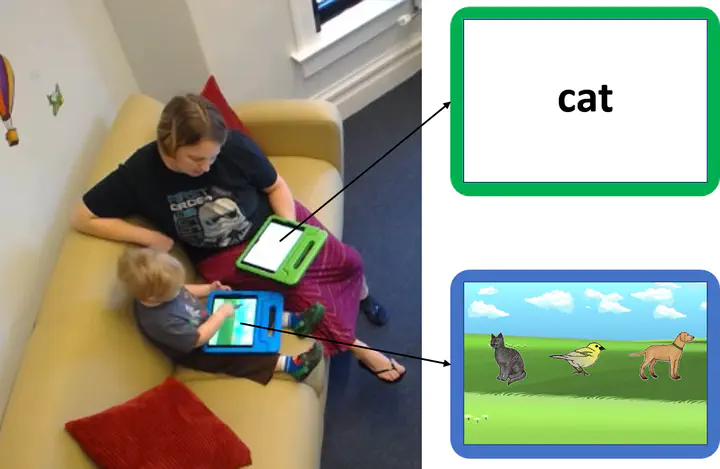
Abstract
Young children learn language at an incredible rate. While children come prepared with powerful statistical learning mechanisms, the statistics they encounter are also prepared for them: children learn from caregivers motivated to communicate with them. How precisely do parents tune their speech to their children’s individual language knowledge? To answer this question, we asked parent-child pairs (n=41) to play a reference game in which the parent’s goal was to guide their child to select a target animal from a set of three. Parents fine-tuned their referring expressions to their children’s knowledge at the lexical level, producing more informative references for animals they thought their children did not know. Further, parents learned about their children’s knowledge over the course of the game, and tuned their referring expressions accordingly. Child-directed speech may thus support children’s learning not because it is uniformly simplified, but because it is tuned to individual children’s language development.